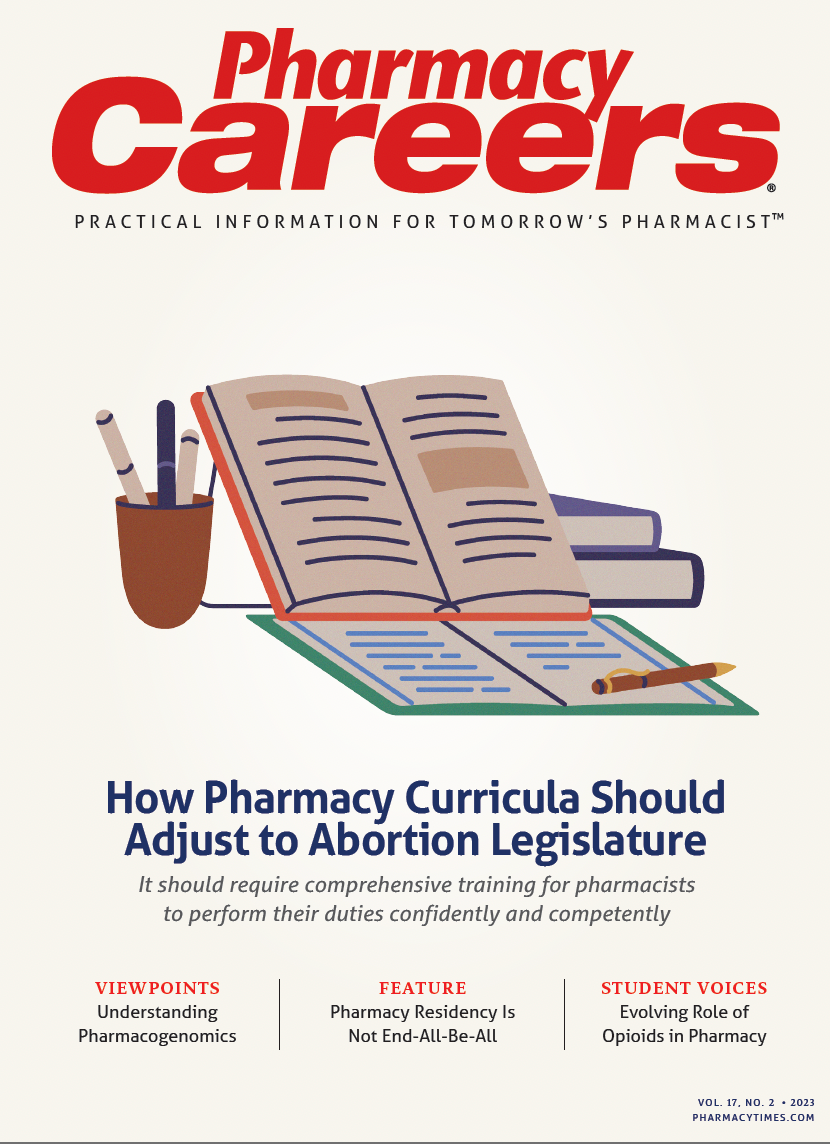Commentary
Article
Pharmacy Careers
Parenting and Pharmacy Residency: 4 Tips and Tricks for Success
Author(s):
Although everyone’s residency looks different, it is important for mothers to assess childcare options, be transparent about their schedule, and take care of themselves.
Most pharmacy students in their last year of school are thinking about similar things: Will I get a job when I graduate? Am I going to match with a residency program? How will I survive these student loans? Although these are all questions I had, I also had some others: Will I go into labor during my rotation? Will I be able to find a day care in time to go back to work? Will I have time to study for my boards? If you are considering parenthood, are already pregnant, or a parent and are tackling pharmacy school, here are some tips.
Zamrznuti tonovi - stock.adobe.com

1. Assess Childcare Options
Residency is a time- and emotion-intensive part of your career. Whether or not you are a new parent, it’s important to have a solid support system in place. Residency may take you away from your hometown, friends, and family, so becoming familiar with the town you will be calling home is imperative.
The first step to success is assessing your childcare options. This is a time-sensitive task, so it is important to start as soon as you know where you will be your completing residency. Will your partner stay home? Do you have friends and/or family nearby who are willing to provide support? If this is the case, plan accordingly and establish a schedule to ensure everyone is on the same page, especially if your schedule changes unexpectedly because of patient care. If your family needs more support, review the benefits offered by your program. This may include an associated childcare center or additional financial resources. Additionally, reach out to your human resources department and local moms group for additional suggestions. Thankfully, I was able to talk to my residency program director about daycare options, and she put me in contact with the school director. The cost of day care is often limiting for some families, so a nanny might also be an option if it is available to you. Whichever route you choose, be sure to consider your staffing schedule, as childcare centers are typically closed outside of traditional business hours and you will need to plan accordingly.
2. Always Be Transparent
There are many lessons that I’ve learned since becoming a mom and since entering my role as a resident, but one of the biggest things that has impacted me is the ability to be transparent about my needs and responsibilities at home. As a student, I always felt like I could not speak up about the time that I needed or other needs that affected my home life. Upon transitioning into a job, I have been reminded that, like me, all my preceptors have lives outside of the hospital. Everyone has dentist appointments, someone coming after work to fix their broken dishwasher, and children’s doctor’s appointments. At the beginning of the month, discuss with your preceptor any appointments that you may need to leave for, and ask for paid time off (PTO) days well in advance. Also, remember that you may not be able to go to all of those appointments, and that is OK; this is why you have formed such a great support system. If there is a big milestone appointment coming up, like a 1-year visit, then allocate your time and PTO accordingly. Make more than 1 appointment on a PTO day so you can get as much done as possible during your day off.
Another aspect of transparency, and part of your rights as a mother, is letting your preceptor know the times that you will need to step away from patient care and pump, if this is something you choose to do. Depending on your family’s schedule, you may be pumping 3 to 4 times a day at work, and it is important that your preceptor is aware of the time requirement. My pump schedule is something that I had to adjust each month because of changes in my rotations, but my preceptors have been accommodating. I chose to invest in a mobile pump, so I could work in my office while pumping, which I highly recommend if it fits into your budget. It allows me to pump on my way to work and during lunch, so I can enjoy that time with my co-residents in the office. Also consider reviewing the pumping resources that your residency site has to offer. Many hospitals offer hospital-grade pumps on-site that require you only to purchase compatible parts to avoid bringing your pump to and from work.
3. One thing I love about my residency program is how many co-residents I have. I’ve been able to form unique connections with all of them, and we all understand what the others are going through. While our lives look similar at the office, when I leave for the day and take my resident hat off, my mom hat goes on, and I start my other full-time job. This comes with some negatives, such as not being able to take a quick nap, but it’s filled with so many positives. One of the biggest positives is the change in my time management. I initially refined this skill by getting a few chores done, napping, and showering while my newborn was taking a nap. This has transitioned to working up patients, editing my manuscript, and sometimes still taking a (much shorter) nap while she sleeps. I am now more productive at work and at home because I have learned that when you have some downtime, you should use it wisely. Another positive at home is seeing my daughter’s face light up as she reaches for me to pick her up, which is something that I look forward to every day. We have settled into a nighttime routine, and I make sure that, rotation permitting, I am always home in time for story time before bed.
Your family time may change how you connect with your co-residents outside of work. You may not be able to attend a last-minute event, but it’s important to be intentional and connect with your team. They are a big part of your support system. Consider planning something with them a week or 2 out so you can plan for childcare. Another option is inviting people over for a movie at home. Remember that to take care of your child, you must take care of yourself, which includes having a night with your friends.
4. Remember to Be Kind to Yourself
Out of all the advice that I’ve given so far, I believe this is the most important. No one knows what the transition from student to resident feels like before they have experienced it. You start as a student by giving all recommendations to your preceptor and evolve into a resident, managing a whole team. Take it 1 day at a time and remember that you always have other pharmacists there to check in with. At the same time, you will be constantly transitioning in parenthood. You are now taking care of another human who relies on you for everything. Moms are great at taking care of their children and pharmacists are experts at caring for their patients, but we often put our own self-care on the back burner. Caring for yourself means better care for your family and your patients.
I recommend scheduling at least 15 to 20 minutes each day for yourself. This could include leaving the house 15 minutes early for some alone time, eating lunch outside to get extra sunlight, or even taking a moment to breathe deeply, reset, and drink some water. I’d recommend also taking this time at home in the form of reading, yoga, exercise, or anything that will allow you to focus on yourself. It may not seem like a lot, but you will appreciate the time to decompress. Scheduling time every day is important, but you should also utilize your PTO to step away from the hospital. Consider utilizing childcare on your day off and getting a manicure or a massage or seeing a movie. You may initially feel guilty, but it is important to take care of yourself so you can be the best version of yourself. It is fun to pamper yourself occasionally, and you can spend the rest of the day with your family.
Conclusion
While this journey may seem daunting, remember that you have made it this far in your career, and you are capable of anything. Take the time to create routines at home and at work so you do not become overwhelmed. Remember to lean into your support system for advice, help, and comfort. If you do find yourself feeling overwhelmed, take some time for yourself and consider reaching out to your preceptor or program director. Everyone will tell you that you are a rock star and they do not know how you can do it all, but you are, and you can. You’ve got this!
About the Author
Katherine Maddox, PharmD, MPh, is a current PGY2 critical care resident at Novant Health New Hanover Regional Medical Center, in Wilmington, North Carolina, where she also completed her PGY1 pharmacy program. Maddox earned a bachelor of science in biology at the University of North Carolina-Wilmington and her PharmD and master of public health degrees at Long Island University, in New York.

Newsletter
Stay informed on drug updates, treatment guidelines, and pharmacy practice trends—subscribe to Pharmacy Times for weekly clinical insights.






